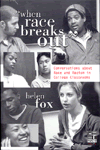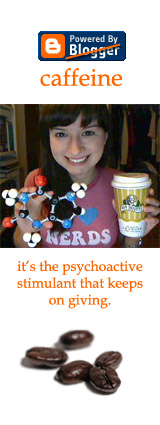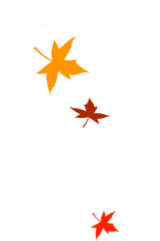At the conclusion of her piece, The Parents of Baywoods – Intersections Between Whiteness and Jewish Ethnicities Cynthia Levine-Rasky asks her Readers how the Holocaust is represented in the curriculum, and how teaching about the Holocaust compares to teaching about Israel, the Palestinians, the Middle East and other genocides. The following essay is a summary of, and critique of, my own experiences, and a discussion of the programs currently being pursued in Montreal which are geared towards Holocaust sensitization.
In secondary V, I read Viktor Frankl’s book, Man’s Search for Meaning, which chronicles the author’s imprisonment in the Theresienstadt concentration camp during the Holocaust. As a psychologist, Dr. Frankl not only gives the reader an idea of the unimaginable conditions which he survived, but he also provides insight into the psychological reactions the inmates had to the camp. His conclusion is that meaning in life can be found in even the most oppressive and painful of circumstances. Frankl also concludes that there are only two races of men – decent and indecent, and both these races, he tells us, were represented in the Nazi guards, and in the prisoners.

I read this book because it was required reading in my World Religions class. In this class I also learned about the three Abrahamic faiths and their historical roots, and about the doctrines of Christianity, Judaism, Islam and Buddhism. This is, to the best of my recollection, the only class in which the Holocaust, Israel and Palestine were directly addressed in my secondary school. I say ‘directly’ because there were certainly other, more incidental moments of exposure to the story of the Holocaust – visits and discussion with the boys from Bialik High School, and class trips to local theatre events, one of which was a play about survivors of the Holocaust. Later, in University, I would take a World War II history class, where the genocide would be studied in much greater detail.
The unfortunate reality of my schooling is that I have never been formally educated in world history or even the history of western civilization. The CEGEP which I attended did not make these electives easily available to Science students. There seemed to be the general opinion amongst my peers that we didn’t need to waste our time with ‘arts’ classes, and among the ‘arts’ teachers there seemed to be the general opinion that science students didn’t read or write well enough to handle the coursework. As somebody who didn’t subscribe to either position, and who quite frankly found the first one arrogant and the second one insulting, I was left to flip through my friends’ textbooks and drool over their notes. It is a shame that World History is not a required course for graduation from any CEGEP program, even the programs sympathetically designed for illiterate science students like me.
My exposure to the concept of Zionism and the Israeli-Palestinian conflict, and to the realities of other genocides (namely those which took place or are taking place in Turkey, Iraq, East Timor, Rwanda, Darfur and Tibet) occurred almost exclusively through participation in debating tournaments and model United Nations seminars. Every year, McGill hosts an excellent model United Nations seminar for beginners (SSUNS), where high school students are able to serve as delegates for member nations and debate current events of global interest with other students from around the world. For example, I remember my first experience was representing Syria on the General Assembly, and the topic of debate was weapons proliferation in the Middle East. My research for this event led me to questions about the conflict on the West Bank, the split in Muslim loyalties between Sunni, Shia and Kurdish factions, and the human rights violations occurring in nations throughout the region and beyond (at the time, the Kosovo War was very much a topic of discussion). Of course, to be thrust into so many new ideas at once was overwhelming, but better to drown in a sea of information than to die of thirst for want of it. I remember wishing that my Religion class, after reading Frankl, had gone beyond the Holocaust to discuss current instances of genocide. In this respect, I am very much in agreement with Taylor and would like to second her call for more education about contemporary issues.
A quick reading of recent newsletters from the English Montreal School Board tells me that a ‘Holocaust Sensitization Program’ has been established since 2004, and is a joint effort between the EMSB and the Montreal Holocaust Memorial Center Museum. This project is being funded partially by the Jewish Community Foundation of Montreal. This gives some reinforcement to my feeling that the reason that the Holocaust usually receives some or quite a bit of attention in the high school curriculum, and why other genocides often do not, is because of the political and social prominence of the Jewish minority in Montreal in particular, and in North America in general. It is largely through the efforts of this community to raise awareness and offer financial support to Holocaust education programs in secondary schools that we see results. Now let me be clear: I do not mean to fault the Jewish community for influencing secondary education; on the contrary, this is a success story. It is unfortunate that other minority groups have not been as able to, or have not been as willing to stand up and tell their stories – to build museums, to establish foundations, to work in partnerships with local school boards to organize events. In a 2004 poll, 40% of Canadians were able to answer correctly that the number of Jews killed during the Holocaust totaled approximately 6 million. I doubt even one-half that many could offer similar information about other world tragedies.
For an analysis of Holocaust education in Canada, conducted by B’nai Brith Canada, go here. For an article reporting on Montreal teachers’ experiences with teaching students about the Holocaust, go here.













2 comments:
Write, write, write. You must write! And teach! And learn! And inspire others to do the same!
I hope you're involved with the WOW Lab here at school? For passionate science teachers? And have at least met Brian Alders?
Lisa
Lisa, you mean Brian Alters, right? No, I haven't met him, but I read and enjoyed very much his book: Defending Evolution.
Kristen
Post a Comment